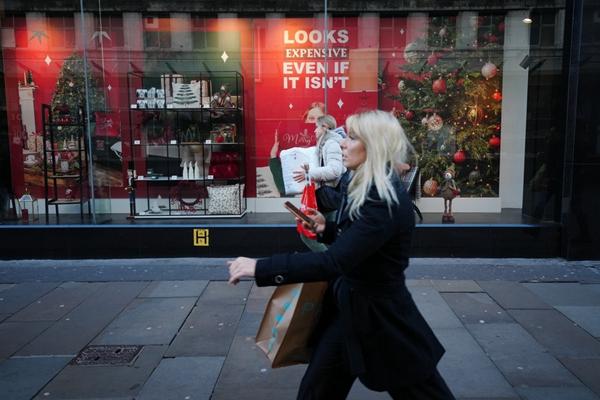

style="MARGIN: 0px 3px 15px">The United Kingdom's (UK) consumer prices index (CPI) rose by 10.7 percent in November, down from 11.1 percent in October, according to data released on Wednesday by the Office for National Statistics (ONS).
"Prices are still rising, but by less than this time last year with the most notable example of this being motor fuels. Tobacco and clothing prices also rose, but again by less than we saw this time last year," said ONS Chief Economist Grant Fitzner.
"This was partially offset by prices in restaurants, cafes and pubs, which went up this year compared to falling a year ago," Fitzner added.
The annual inflation rate for transport was 7.6 percent in November, down for a fifth consecutive month from a peak of 15.2 percent in June, said the ONS, noting that the main drivers behind the easing came from motor fuels and second-hand cars.
The annual rate for restaurants and hotels was 10.2 percent in November, the highest rate since the constructed historical estimate of 10.5 percent in December 1991, according to the ONS.
Food and non-alcoholic beverage prices continued to rise, up by 16.5 percent in the 12 months to November. The annual rate of inflation for this category has risen for 16 consecutive months.
"This looks like a genuine slowdown in the pace of price rises," said Samuel Tombs, Chief UK Economist of Pantheon Macroeconomics, predicting that CPI inflation should continue to decline over the coming months.
However, economist Andrew Sentance, a former Bank of England policymaker, said that inflation was still at the second-highest level in 40 years. "Inflation remains extremely high despite the small drop," he said.
Jack Leslie, economist from renowned think tank Resolution Foundation, said there is a good chance the inflation has passed the peak but it is far too early to declare victory and move on from focusing on the cost-of-living crisis.
November's CPI figures still maintain the pressure on the central bank to hike the benchmark interest rate at its next meeting on Thursday. The monetary policy committee is widely predicted by market analysts to raise the rate by 0.5 percentage points to 3.5 percent.
